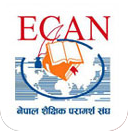New Zealand
New Zealand (Aotearoa : land of the long white cloud), truly is one of the most picturesque and photogenic places on earth. A small island nation of just over 4.5 million people, New Zealand is made up of two major land masses (North Island and South Island) and a number of smaller islands including Stewart Island located in the south-western Pacific Ocean. The two main islands are divided by a 22km stretch of water called the Cook Strait.
New Zealand is located approximately 1,500km east of Australia and about 1,000km from the Pacific Islands. Due to its relative remoteness and being water locked, New Zealand was one of the last countries to be found and settled.
The country is made up of some of the worlds most spectacular landscapes, from vast mountain ranges, steaming volcanoes to sweeping coastlines. It is a natural playground for thrill seekers and adventurers and those who simply want to visit for the culture and landscapes.
New Zealander’s are affectionately known as “Kiwis”. The name derives from the kiwi, a flightless bird native to New Zealand. It is also the national symbol. Kiwis are characterised as rugged, industrious problem solvers and people who innovate. Kiwis are great travellers themselves with many exploring and making an impact on the world (sport, business, politics, etc). Younger New Zealander’s often travel to England for working holidays before settling back in New Zealand and any New Zealander can travel and work in Australia indefinitely.
Facts & Figures:
- Capital : Wellington
- Population: 4.5 million
- Dialling Code: +64
- Currency: NZ $
- Official Language: English and New Zealand Sign Language.
Why Study in New Zealand?
New Zealand, although it is the same size as Japan or Great Britain, but there are a lot of reasons that you should consider going there for your studies abroad.
New Zealand has 8 state-funded universities, 16 Institutes of Technology and Polytechnics (ITPs) and about 550 Private Training Establishments (PTEs), which include English language schools. Choose the type of institution that best for your career path:
Universities offer higher degree-level education. Programmes are research-led and generally academic rather than vocational.
In the 2015/16 QS World University Rankings, all eight of New Zealand’s universities were in the top 100 in at least one subject.
ITPs and a few larger PTEs offer vocational degree-level education.
PTEs tend to offer specific vocational programmes, mainly at certificate and diploma level.
New Zealand has signed agreements with groups of European and Asia-Pacific countries that commit to recognising each other qualifications.
These agreements include the Lisbon Recognition Convention in Europe, which has been signed by 50 countries and international organisations including the European Union, the United States, Australia, Canada, Russia and Israel.
Working While Studying:
If you have a Student Visa, you may be able to work part-time, up to 20 hours per week, and full-time during scheduled holidays.
Students of a Masters by research or Doctoral Degree at a New Zealand institution may work full-time while they are studying.
During scheduled breaks eligible students may work full-time.
You may be eligible to work full-time during all scheduled breaks if your programme is for one academic year, AND is worth 120 credits or more.
If your programme is full-time for one academic year but worth less than 120 credits, you may be able to work full-time during the Christmas and New Year holiday break.
Opportunity after Study:
Once you’ve finished your study, you may want to stay on and work in New Zealand for a while to gain work experience. You may even consider staying in New Zealand permanently.
There are pathways that make it easier for you to stay, if you meet certain conditions.
New Zealand immigration policies include a post-study work pathway for international students who have completed a New Zealand qualification. This lets you find a job and get work experience in a field directly related to your studies, and makes it easier to apply for residence.
There are two types of work visa specifically for students who have completed their tertiary study in New Zealand:
- The Post-study work visa (open). This gives you up to 12 months to find a job that is relevant to your studies.
- The Post-study work visa (employer assisted). This option lets you work in a specific job, which must be relevant to your studies, for two more years.
If you want to stay in New Zealand for longer you will need to find a job that is relevant to the qualification you achieved here.
If you decide you are going to look for work here Seek, Trade Me and New Kiwis are popular job search sites. You should also check out the Careers New Zealand website which has a list of online recruitment sites.




